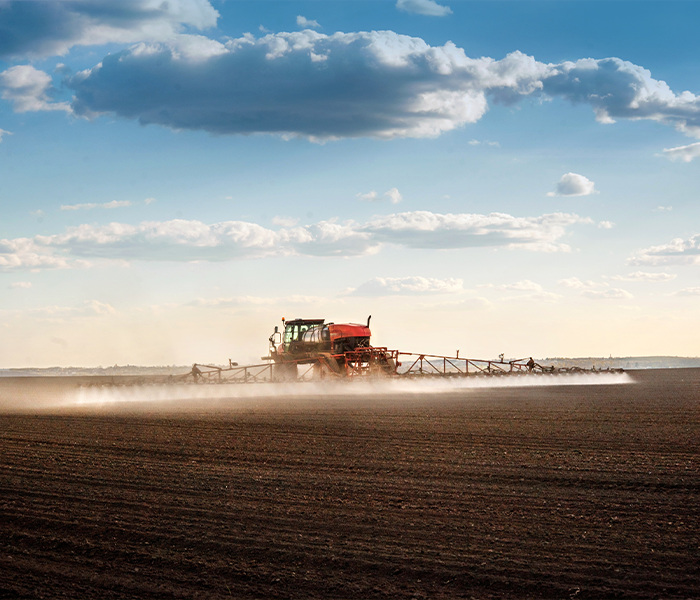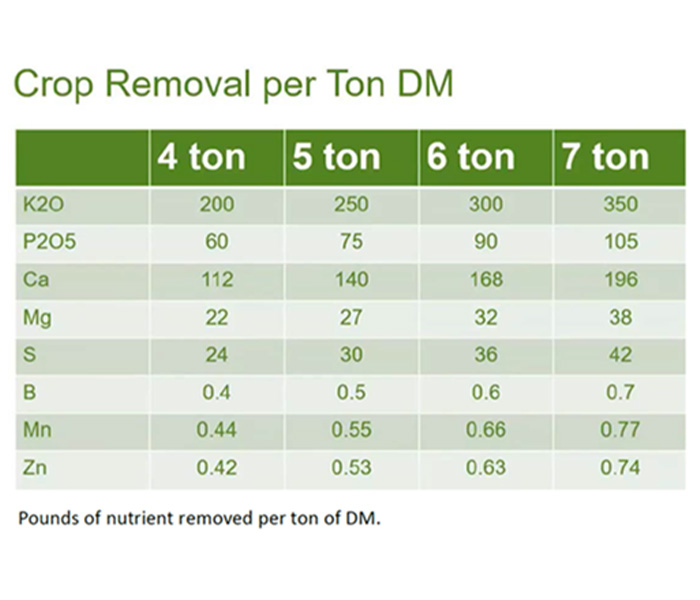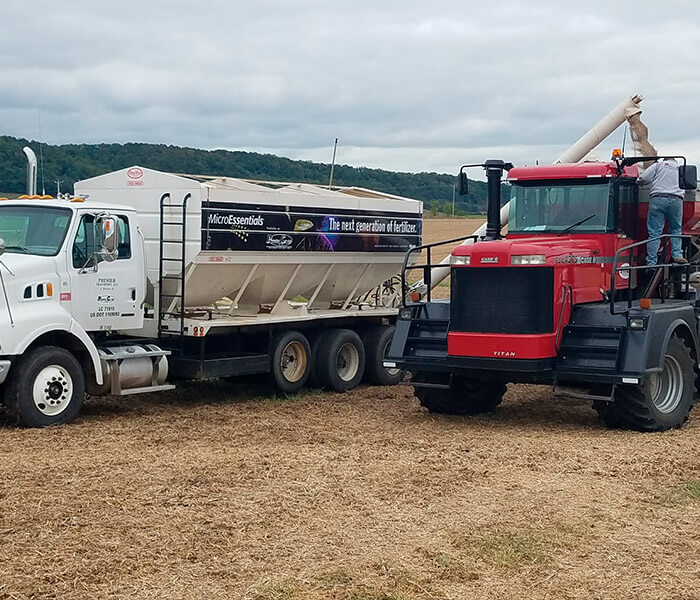Preparing for Next Year.
Fall is a perfect time to replace and correct the nutrients needed for next year. Potassium (K), phosphorous (P) and sulfur (S) applications in the fall are important for high-yield and high-quality alfalfa. First-crop alfalfa growth is often difficult to fertilize during wet soil in the spring and wheel tracks can cause damage to stands. Plus, fertilizer prices will likely be higher in spring.
Potassium (K) and Phosphorous (P) are important nutrients required for high yield alfalfa, while Sulfur (S) is important for protein production. Application rates of each of these should be based on crop removal, soil tests, and yield goals.
Potash applications should be split in-season: one after first cutting and another application after 3rd or 4th cutting. Late-season second potash application will provide “fuel” needed for winter survival and nutrients for spring growth. Apply the potash at a variable rate to save on overall cost and maximize ROI as fertilizer prices continue to increase.
Alfalfa needs 50 pounds of K applied per every DM ton of forage removed. Boron (B) is also needed for alfalfa and can be applied annually with K. Tissue sampling can help indicate micronutrient needs. MAX-IN® Boron and MAX-IN Sulfur contain CornSorb® technology to help promote nutrient uptake and movement in the plant and can be tank-mixed with insecticides, PGR’s, and fungicides.
Sulfur should be applied annually at a rate of 5 pounds per ton of expected forage. Sulfur can be applied as gypsum, elemental S or ammonium sulfate (AMS) with potash applications.
Manure on established alfalfa does not offer an adequate source of nutrients and wheel traffic from manure tankers/haulers can lead to potential decreased yield and stand persistence due to crown damage from wheel traffic damage and diseases in the lower canopy.
Contact your local Premier agronomist to talk more about fertilizing your alfalfa fields this fall and the benefits it can provide.




